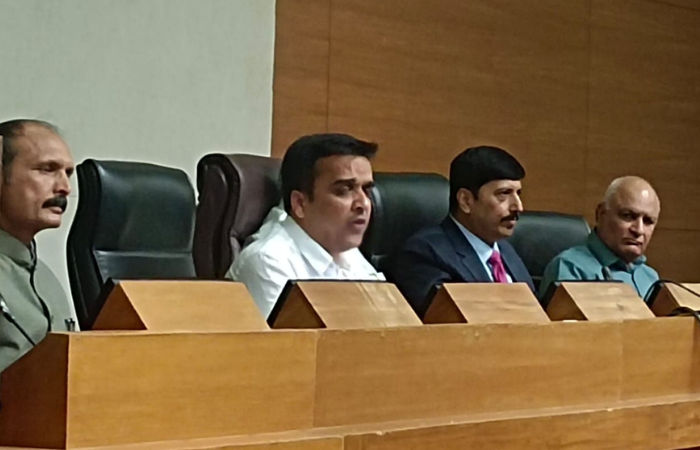Gujarat sets up committee to implement Uniform Civil Code

After Uttarakhand, the BJP-ruled Gujarat announced the formation of a committee for implementation of the Uniform Civil Code (UCC) on Tuesday.
Minister of State for Home Harsh Sanghavi said that a historic decision has been made. A committee has been formed to draft the UCC proposal.
Chief Minister Bhupendra Patel said that ‘Indianness’ is our religion, and the Constitution is our ‘sacred text’. “As we celebrate 75 years of the Constitution, Prime Minister Narendra Modi has decided to implement a uniform law across the country to ensure equal rights,” he said.
A committee will be formed under the leadership of retired Supreme Court judge Ranjana Desai.
Other members of the committee will include retired IAS C L Meena, advocate R C Kodekar, former vice chancellor Dakshesh Thaker and social worker Geetaben Shroff.
This committee will submit its report within 45 days, after which the state government will make a decision.
The state has 15% tribal population, and several areas in the state are under disturbed zones. Regarding this, Sanghavi assured that nothing in the UCC will harm the customs and traditions of the tribal community.
He assured that full consideration will be given to preserving the traditions and customs of the tribal communities.
This comes after the Gujarat government approved the formation of a committee in 2022 to explore the feasibility and necessity of UCC in the state. The panel’s role is to examine the need for such a code and prepare a draft for its implementation.
What is the Uniform Civil Code?
UCC means a common civil code or common law for every citizen residing in India irrespective of religion and caste.
The UCC falls under Article 44 of the Constitution, which refers to directive principles of state policy. The Directive Principles of State Policy (DPSP) states that the state shall undertake to offer a unified set of laws to its citizens within the Indian law.
The rationale is to regulate the population and apply uniform rules for marriage, divorce, adoption, and inheritance across all religions. The UCC aims to ensure equality in personal relationships and family rights, eliminating gender, religious, or traditional biases. Moreover, it ensures that no specific religion is given special legal privileges.
Last month, Uttarakhand created history on becoming the first state in India to implement the UCC.
Also read:

